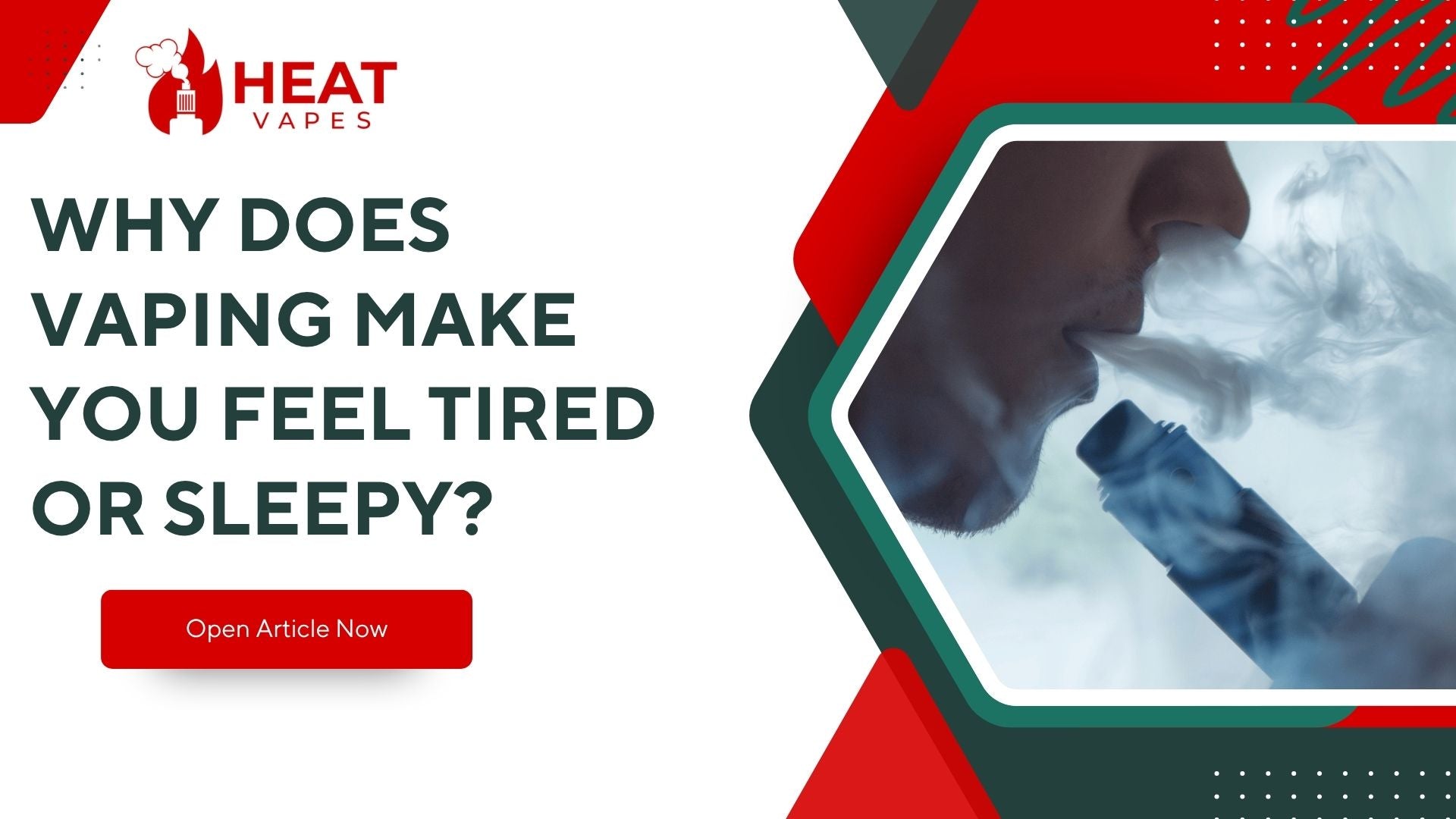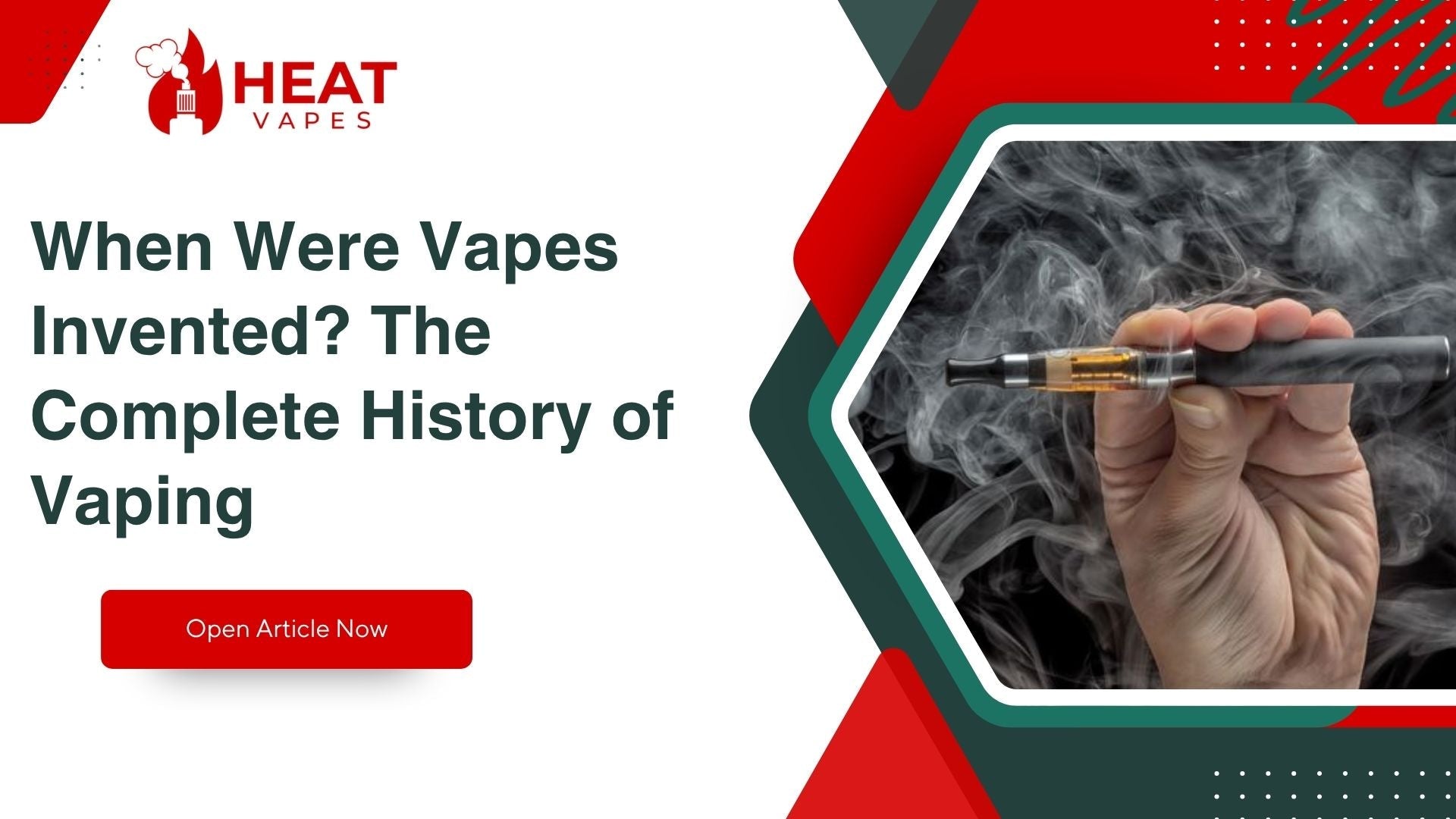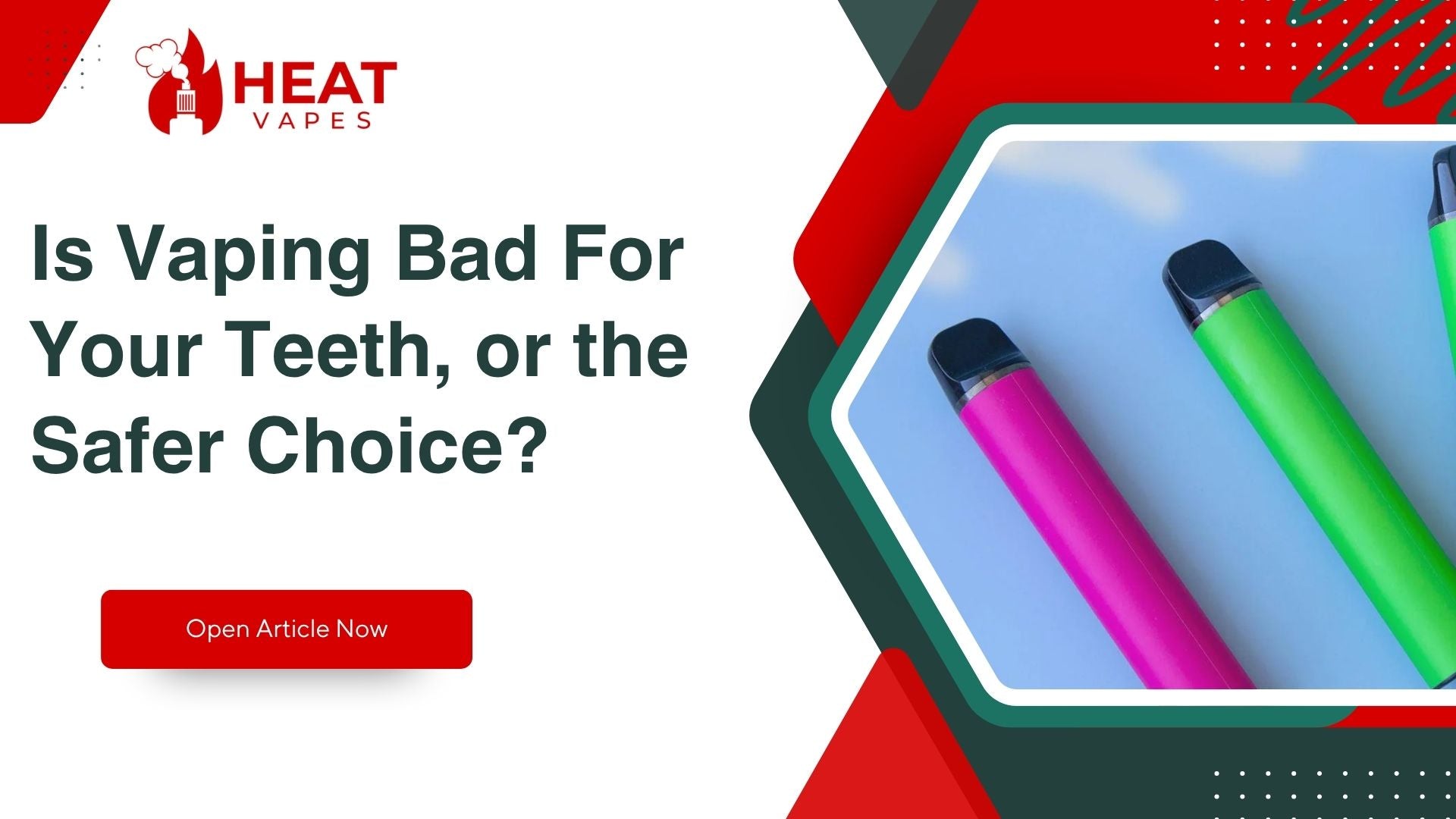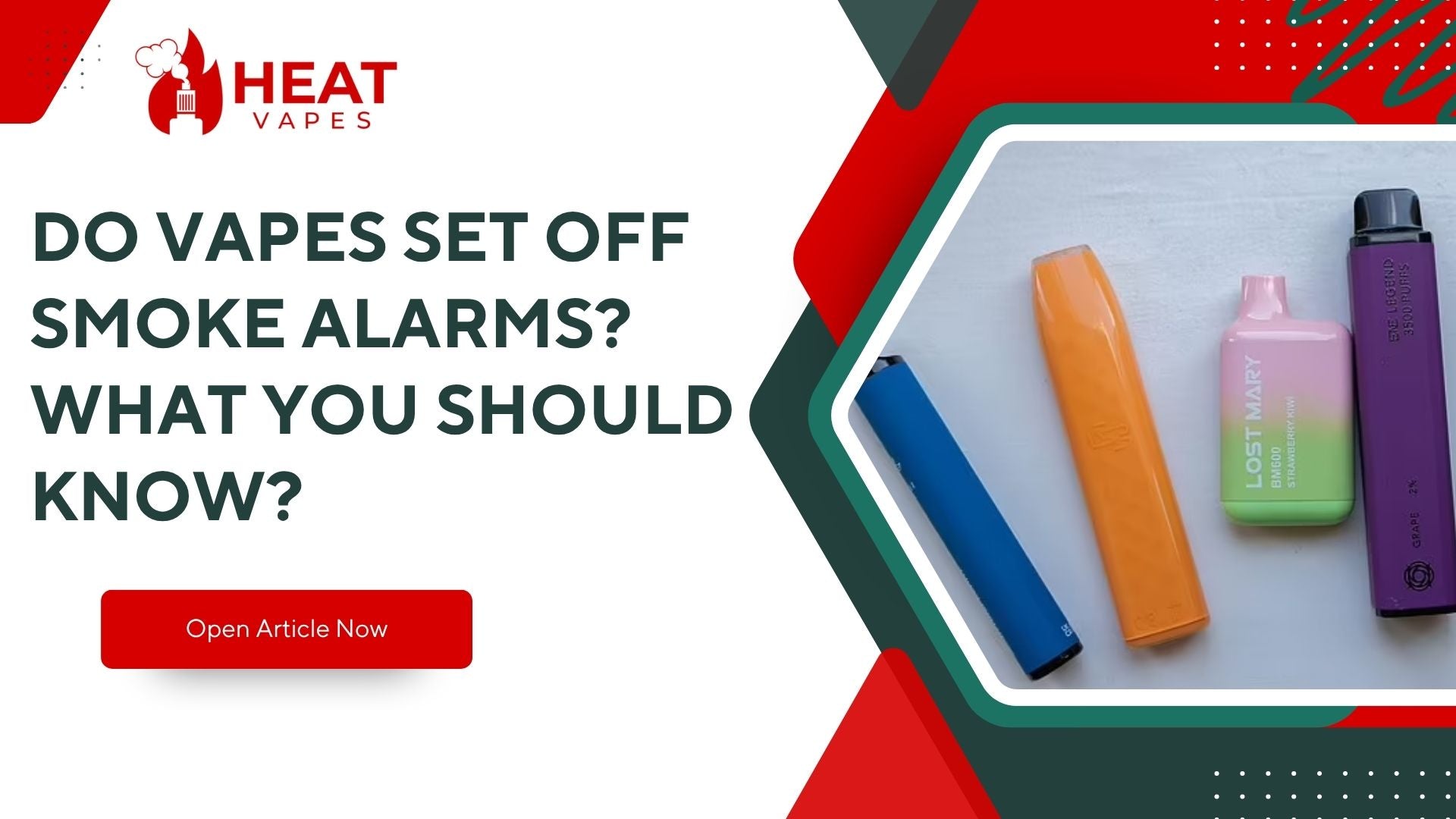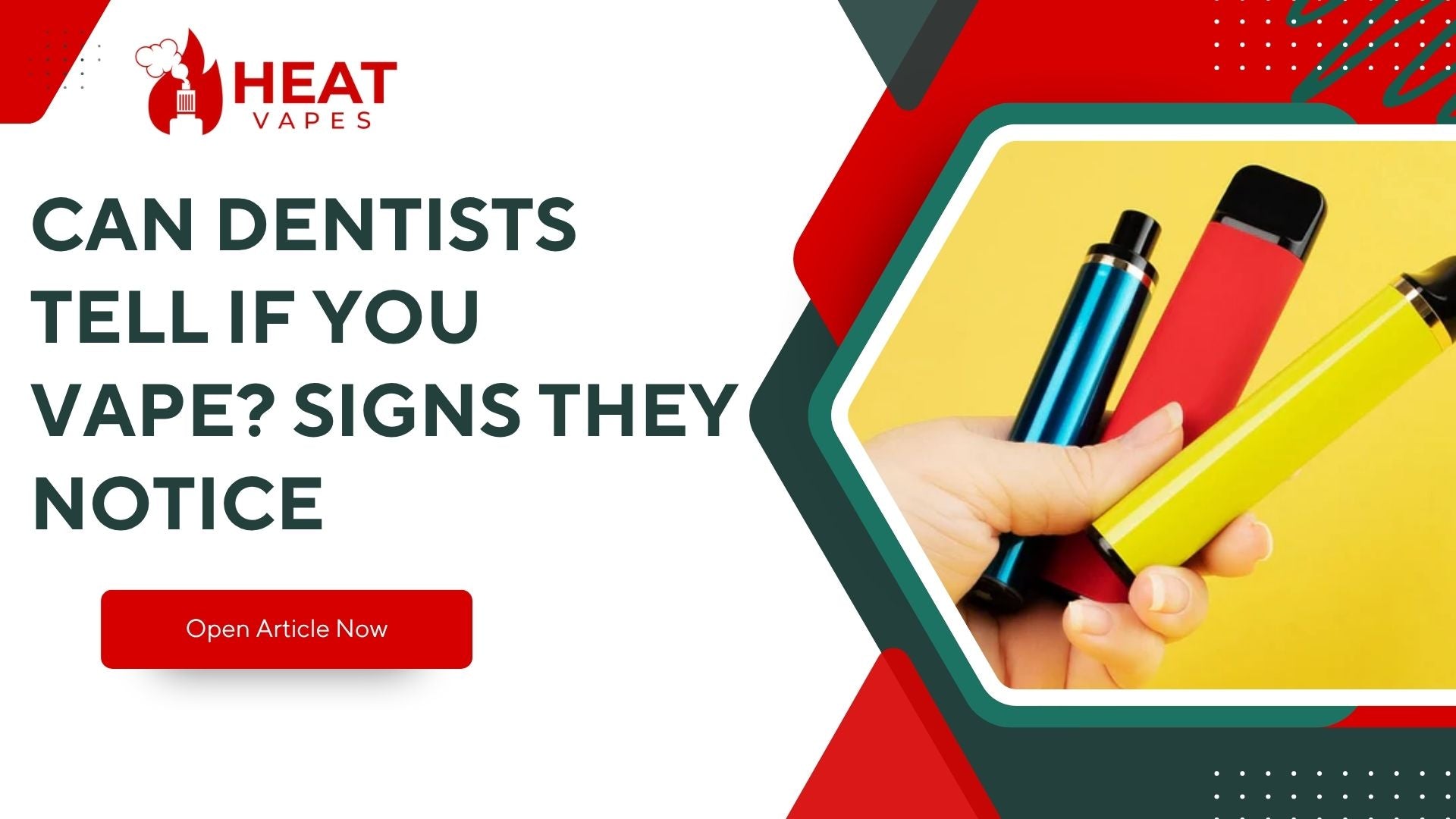
The Question is Does Vaping Make You Tired? In recent years, vaping has established itself as a popular alternative to traditional smoking. Marketed as a less harmful method, vape pens and e-cigarettes offer flexibility with various flavors and adjustable nicotine levels.
Despite its growing popularity, there is considerable discourse surrounding the health implications of vaping, particularly its potential role in causing fatigue.
In this detailed overview, we analyse whether vaping may lead to weariness, and go into the underlying variables that can contribute to this feeling.
Vaping and Its Components
1. The E-Liquid Composition
At the center of vaping is the vaporization of e-liquids, which typically contain nicotine, propylene glycol, vegetable glycerin, and flavoring agents. These components may affect the body in numerous ways, potentially influencing energy levels.
2. Nicotine: The Key Player
Nicotine, the primary addictive substance in both cigarettes and many e-liquids, can have complex effects on energy levels. As a stimulant, nicotine initially increases alertness and focus. However, repeated usage can develop to a dependence that impacts general energy and well-being.
Nicotine's Dual Effect: Energy Boost and Crash
1. Short-Term Stimulation
Initially, when inhaled, nicotine leads to the release of neurotransmitters such as dopamine and adrenaline. This release briefly enhances mood and energy.
- Dopamine Release: The rise in dopamine generates a sensation of reward and motivation.
- Adrenaline Surge: Adrenaline heightens alertness and vigour, delivering a transient boost that consumers typically chase.
2. The Inevitable Crash
After nicotine's stimulant effects subside, many users experience a fatigue-inducing crash as neurotransmitter levels drop.
- Depletion and Withdrawal: As nicotine leaves the system, the body experiences a nicotine deficit, prompting withdrawal symptoms such as fatigue, irritability, and concentration difficulties.
Sleep Disruption and Vaping
1. Impact on Sleep Quality
Nicotine's stimulating effects can disrupt natural sleep cycles.
- Reduced REM Sleep: Nicotine can reduce the duration and quality of REM sleep, which is crucial for cognitive processing and memory consolidation.
- Difficulty Falling Asleep: Vaping close to bedtime may result in prolonged sleep latency, caused by nicotine-driven arousal.
2. Long-Term Sleep Issues
Chronic vaping before bedtime could lead to chronic sleep difficulties and daytime exhaustion, aggravating symptoms of sleepiness.
Dehydration: A Hidden Culprit
1. The Drying Effect of Vaping
Vaping can lead to decreased hydration levels. The inhalation of vaporized e-liquids can leave users with a dry mouth and throat, leading to reduced water consumption and dehydration.
- Fatigue Due to Dehydration: Even mild dehydration can lead to cognitive dysfunction, headache, dizziness, and fatigue—all symptoms that may compound the sensations of ( Does Vaping Make You Tired? ) tiredness after vaping.
Respiratory Health and Fatigue
1. Lung Irritation and Reduced Function
Vaping can have harmful consequences on lung health, which may lead to fatigue:
- Inflammation of Airways: Inhaling vapor can irritate and inflame the lung’s air passageways, thereby lowering lung function.
- Oxygen Transport Impairment: Reduced lung function can impede effective oxygen transport, resulting to diminished energy availability to physiological tissues.
2. Reduced Exercise Tolerance
Lung function effects one’s capacity to engage in physical activity. Those who encounter vaping-induced respiratory difficulties may find themselves more prone to tiredness owing to lower exercise ability.
Psychological Factors and Habitual Dependency
1. Anxiety, Stress, and Fatigue Cycle
While many individuals use vaping as a coping method for stress and worry, these elements can also play a key influence in the appearance of( Does Vaping Make You Tired? ) tiredness.
- Mental Fatigue: The stress of reliance, along with probable mood changes from nicotine usage, can contribute to ( Does Vaping Make You Tired? ) mental tiredness.
2. Habitual Vaping and Routine
The regular nature of vaping can entangle with one's daily schedule, impacting moments of relaxation and work:
- Compulsive Use: Continuous vaping can lead to chronic exposure to nicotine, impacting everyday life and energy patterns negatively.
Strategies to Combat Vaping-Induced Fatigue
1. Adjusting Nicotine Levels
Gradually lowering nicotine levels in e-liquids may help decrease reliance and its eventual withdrawal impacts:
- Switching to Lower Strengths: Slowly switching to lower nicotine concentrations can lessen withdrawal episodes and help stabilize energy levels.
2. Focus on Sleep Hygiene
Establishing improved sleep hygiene practices may dramatically impact the quality of slumber and, consequently, energy levels throughout the day.
-
Consistent Sleep Schedule: Adopting a regular sleep routine can help balance
circadian rhythms, which can be disrupted by two main factors: nicotine and general vaping habits.
- Creating a Restful Environment: Ensure that your sleeping environment is favourable to rest—dark, quiet, and cold settings are best for increasing sleep quality.
3. Maintaining Hydration
Staying properly hydrated can mitigate the dehydrating effects of vaping:
- Increase Water Intake: Consuming lots of water throughout the day will help counteract the dry mouth and throat associated with vaping, enhancing overall physical performance and energy levels.
4. Nutritional Considerations
A balanced diet rich in nutrients can increase energy levels and general health:
-
Incorporate Energy-Boosting Foods: Consuming fruits, vegetables, complete grains, and lean meats can deliver continuous energy throughout the day.
-
Avoid Excessive Caffeine and Sugar: While both might give a momentary energy boost, they may lead to crashes that increase feelings of exhaustion.
5. Engage in Regular Exercise
Physical activity can promote not just physical health but also mental well-being:
-
Boost Oxygen Intake: Engaging in cardiovascular exercises helps to strengthen lung capacity and enhances circulation, eventually promoting higher energy levels.
-
Reduce Stress and Anxiety: Exercise is a natural method to release endorphins and enhance mood, which helps combat the cumulative effects of exhaustion that occurs from vaping.
6. Consider Alternatives to Vaping
If you’re experiencing persistent weariness due to vaping habits, consider lowering or discontinuing your use:
-
Explore Nicotine-Free Options: Transitioning to nicotine-free vaping products or alternate relaxing techniques can help minimise reliance and its related weariness.
-
Seek Support: Consultation with a healthcare practitioner can give suggestions for lowering or stopping vaping, aiding with managing withdrawal symptoms and recovering energy levels.
In short, vaping has several possible consequences on energy levels and may contribute considerably to sensations of weariness.
While nicotine can give a momentary energy boost, the subsequent collapse, interrupted sleep cycles, dehydration, and respiratory difficulties along with psychological variables create a complicated milieu that can lead to weariness.
Understanding the numerous characteristics of how vaping impacts ( Does Vaping Make You Tired? ) tiredness helps users to make educated choices regarding their habits and health.
By adopting better habits regarding hydration, diet, exercise, and sleep hygiene, ( Does Vaping Make You Tired? ) individuals can offset the weariness frequently linked with vaping and move towards a healthier lifestyle.
Can Vaping Cause Insomnia?
Vaping has achieved great popularity as an alternative to traditional cigarette smoking, appealing to many for its claimed reduced damage and range of tastes.
However, users typically report having insomnia or altered sleep ( Does Vaping Make You Tired? ) patterns after adopting vaping practices.
In this article, we analyse the potential association between vaping and insomnia, investigating the underlying processes and giving insights into how vaping may effect sleep quality.
Vaping and Its Components
1. What is Vaping?
Vaping involves inhaling vapor produced by an electronic device, commonly known as a vape or e-cigarette. These devices heat a liquid solution, often referred to as e-liquid or vape juice, which typically contains nicotine, flavoring agents, and other chemicals.
2. Key Ingredients in E-Liquids
The primary ingredient in many e-liquids is nicotine, a highly addictive substance that can influence various bodily functions, including sleep cycles ( Does Vaping Make You Tired? ). Other components, such as propylene glycol and vegetable glycerin, can also introduce different physical effects, potentially affecting overall health and wellness.
The Role of Nicotine in Sleep Patterns
1. Stimulation and Alertness
Nicotine acts as a stimulant that directly affects the nervous system. When users vape, nicotine enters the bloodstream rapidly, leading to immediate physiological and psychological changes:
- Increased Dopamine Levels: Nicotine promotes the release of dopamine, enhancing pleasure and alertness in the short term.
- Temporary Energy Boost: Users may find it harder to fall asleep after vaping, particularly if done near to bedtime. Nicotine arousal can delay the beginning of sleep, leaving users tossing and turning.
2. Disruption of Sleep Cycles
Despite its initial stimulating effects, nicotine can have a detrimental impact on sleep quality.
- Reduced REM Sleep: The sleep cycle consists of various stages, and REM (Rapid Eye Movement) sleep is crucial for cognitive function and emotional health. Vaping can decrease the duration of REM sleep, leading to non-restorative sleep.
- Increased Sleep Latency: Users may find it harder to fall asleep after vaping, particularly if done near to bedtime. Nicotine arousal can delay the beginning of sleep, leaving users tossing and turning.
Impact of Vaping on Sleep Quality
1. Connection Between Vaping and Insomnia
Research has suggested that persons who vape may develop insomnia symptoms at greater rates than non-vapers. This link can be ascribed to numerous factors:
- Withdrawal Symptoms: Regular users of nicotine may experience withdrawal effects during the night, resulting in restlessness and difficulty sleeping. Symptoms can include irritability, anxiety, and intense cravings.
2. Psychological Factors
The psychological effects of addiction to nicotine can contribute to sleep ( Does Vaping Make You Tired? ) problems.
- Increased Anxiety: Vaping may exacerbate anxiety and stress levels, which can hinder the ability to relax and fall asleep.
- Compounded Stressors: The psychological dependence on vaping can create a cycle of stress and fatigue, ultimately leading to poor sleep quality.
3. Respiratory Irritation and Sleep
Inhaling vapor can lead to respiratory irritation, which may also impact sleep.
- Coughing and Wheezing: Many vapers report experiencing irritation in their respiratory tract, which can result in coughing and wheezing during the night. This discomfort can interrupt the natural flow of sleep.
The Effects of E-Liquid Ingredients on Sleep
1. Propylene Glycol and Vegetable Glycerin
Propylene glycol (PG) and vegetable glycerin (VG) are common base ingredients in e-liquids. While generally recognized as safe for consumption, their effects on the respiratory system can lead to discomfort:
- Airway Irritation: Both chemicals might induce airway irritation, perhaps leading to increased respiratory difficulties during sleep and adding to insomnia-related symptoms.
Healthy Vaping Habits for Better Sleep
1. Timing Your Vaping
Timing can play a significant role in the effects of vaping on sleep.
- Avoid Vaping Before Bed: To maximize sleep quality, individuals should refrain from vaping at least two hours before bedtime. This can minimize nicotine intake close to sleep ( Does Vaping Make You Tired? ) and reduce its stimulating effects.
2. Gradual Reduction of Nicotine Levels
For regular vapers, reducing nicotine intake may help mitigate insomnia symptoms:
- Switch to Lower-Nicotine E-Liquids: Gradually choosing e-liquids with lower nicotine concentrations can help lessen dependence and reduce the disruptive effects of nicotine on sleep.
3. Prioritize Sleep Hygiene
Engaging in good sleep hygiene practices can enhance sleep quality:
- Create a Relaxing Bedtime Routine: Establishing a calming pre-sleep routine that excludes electronic devices and stimulants can help prepare the body for a restful night.
4. Focus on Hydration and Nutrition
Maintaining proper hydration and a balanced diet cannot be overstated when it comes to enhancing sleep quality:
- Stay Hydrated: Ensuring adequate water intake throughout the day can combat the dehydrating effects of vaping and help maintain overall health. Dehydration can lead to fatigue and difficulty concentrating, both of which can affect sleep.
- Nutrient-Rich Foods: Eating a balanced diet, rich in vitamins and minerals, supports overall well-being. Foods high in magnesium and omega-3 fatty acids, such as leafy greens, fish, and nuts, can particularly support stress reduction and relaxation.
5. Explore Alternatives to Vaping
If you find that vaping is significantly affecting your sleep, exploring alternatives can be beneficial:
- Consider Nicotine-Free Options: Transitioning to nicotine-free e-liquids or herbal vaporizers can reduce dependency and promote better sleep quality.
- Pursue Other Relaxation Techniques: Engaging in mindfulness practices, yoga, or meditation can help manage stress and improve relaxation, leading to better sleep outcomes.
6. Seek Professional Guidance
If sleep issues persist, it may be wise to contact with a healthcare expert. They can give specific advice to treat sleep ( Does Vaping Make You Tired? ) disorders, examine vaping behaviours, and advise relevant interventions:
- Cognitive Behavioral Therapy for Insomnia (CBT-I): This therapy focuses on changing sleep habits and misconceptions about sleep to improve sleep quality. It can be particularly effective for those suffering from insomnia related to vaping or nicotine withdrawal.
- Medical Evaluation: If persistent insomnia is present, a healthcare provider can evaluate for other underlying conditions that may be contributing to sleep difficulties.
Conclusion
In summary, the relationship between vaping and insomnia is multifaceted, with nicotine acting as a significant contributor to sleep disturbances. While vaping may initially provide a sense of relaxation and enjoyment, the long-term consequences on sleep quality can lead to insomnia and chronic fatigue.
Understanding how the components of e-liquids and the habit of vaping impact sleep can empower users to make informed choices. By adopting healthier vaping practices, prioritizing good sleep hygiene, and seeking alternatives, individuals can work towards minimizing the adverse effects of vaping on sleep.
Making these changes can lead to improved ( Does Vaping Make You Tired? ) sleep quality, enhanced overall well-being, and a better quality of life.
Does Vaping Make You Tired? The Science Explained





